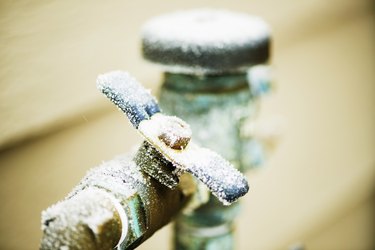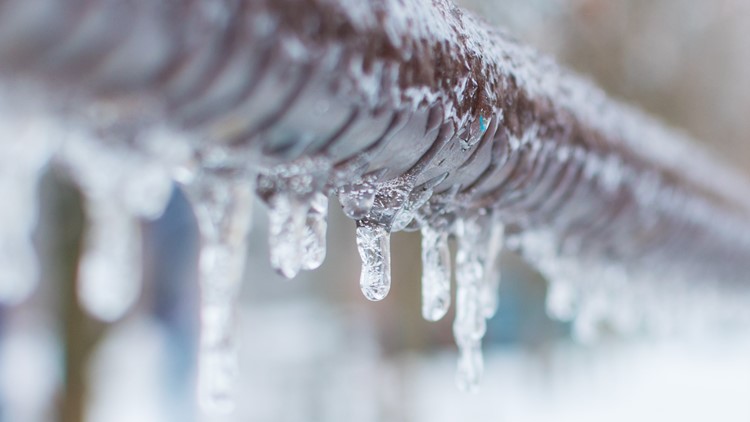Avoiding Frozen Plumbing: Effective Methods for Winter
Avoiding Frozen Plumbing: Effective Methods for Winter
Blog Article
What're your thoughts about How to Prevent Your Pipes From Freezing?

Winter can ruin your pipes, specifically by freezing pipelines. Here's how to prevent it from taking place and what to do if it does.
Intro
As temperature levels drop, the danger of icy pipes increases, possibly resulting in expensive repairs and water damages. Recognizing exactly how to avoid frozen pipes is essential for property owners in cool climates.
Prevention Tips
Shielding at risk pipes
Wrap pipes in insulation sleeves or use warmth tape to safeguard them from freezing temperature levels. Focus on pipelines in unheated or exterior areas of the home.
Home heating techniques
Keep indoor rooms effectively heated, particularly areas with pipes. Open up closet doors to permit cozy air to circulate around pipes under sinks.
How to determine frozen pipes
Search for reduced water flow from faucets, unusual smells or sounds from pipelines, and noticeable frost on subjected pipes.
Long-Term Solutions
Structural adjustments
Consider rerouting pipelines far from exterior wall surfaces or unheated areas. Add additional insulation to attics, basements, and crawl spaces.
Updating insulation
Purchase premium insulation for pipes, attic rooms, and walls. Proper insulation assists keep consistent temperature levels and decreases the danger of icy pipelines.
Safeguarding Outdoor Pipes
Yard tubes and exterior faucets
Detach and drain garden hose pipes before wintertime. Install frost-proof spigots or cover exterior faucets with protected caps.
Recognizing Icy Pipelines
What creates pipelines to ice up?
Pipelines ice up when revealed to temperatures listed below 32 ° F (0 ° C) for expanded durations. As water inside the pipelines ices up, it broadens, putting pressure on the pipe wall surfaces and potentially creating them to break.
Dangers and damages
Icy pipelines can cause water system interruptions, residential property damage, and expensive repair services. Burst pipes can flood homes and trigger considerable structural damage.
Signs of Frozen Piping
Identifying frozen pipes early can prevent them from breaking.
What to Do If Your Pipelines Freeze
Immediate actions to take
If you presume icy pipelines, keep faucets open up to ease stress as the ice melts. Make use of a hairdryer or towels taken in warm water to thaw pipelines slowly.
Final thought
Protecting against frozen pipes needs aggressive actions and fast feedbacks. By understanding the causes, signs, and safety nets, homeowners can shield their plumbing throughout cold weather.
Helpful Tips to Prevent Frozen Pipes this Winter
UNDERSTANDING THE BASICS: WHY PIPES FREEZE AND WHY IT’S A PROBLEM
Water freezing inside pipes is common during the winter months, but understanding why pipes freeze, and the potential problems it can cause is crucial in preventing such incidents. This section will delve into the basics of why pipes freeze and the associated problems that may arise.
THE SCIENCE BEHIND FROZEN PIPES
When water reaches freezing temperatures, it undergoes a physical transformation and solidifies into ice. This expansion of water as it freezes is the primary reason pipes can burst. As the water inside the pipe freezes, it expands, creating immense pressure on the walls. If the pressure becomes too great, the pipe can crack or rupture, leading to leaks and water damage.
FACTORS THAT CONTRIBUTE TO PIPE FREEZING
Low Temperatures: Extremely cold weather, especially below freezing, increases the risk of pipes freezing. Uninsulated or Poorly Insulated Pipes: Pipes located in unheated areas, such as basements, crawl spaces, or attics, are more prone to freezing. Insufficient insulation or lack of insulation altogether exacerbates the problem. Exterior Wall Exposure: Pipes running along exterior walls are susceptible to freezing as they encounter colder temperatures outside. Lack of Heating or Temperature Regulation: Inadequate heating or inconsistent temperature control in your home can contribute to frozen pipes. PROBLEMS CAUSED BY FROZEN PIPES
- Pipe Bursting: As mentioned earlier, the expansion of water as it freezes can cause pipes to burst, resulting in significant water damage.
- Water Damage: When pipes burst, it can lead to flooding and water damage to your property, including walls, ceilings, flooring, and personal belongings.
- Structural Damage: Prolonged exposure to water from burst pipes can compromise the structural integrity of your home, leading to costly repairs.
- Mold and Mildew Growth: Excess moisture from water damage can create a favorable environment for mold and mildew growth, posing health risks to occupants.
- Disrupted Water Supply: Frozen pipes can also result in a complete or partial loss of water supply until the issue is resolved.
WHY CERTAIN PIPES ARE MORE PRONE TO FREEZING
- Location: Pipes located in unheated or poorly insulated areas, such as basements, crawl spaces, attics, or exterior walls, are at higher risk of freezing.
- Exterior Pipes: Outdoor pipes, such as those used for irrigation or exposed plumbing, are particularly vulnerable to freezing as they are directly exposed to the elements.
- Supply Lines: Pipes that carry water from the main water supply into your home, including the main water line, are critical to protect as freezing in these lines can affect your entire plumbing system.
- Underground Pipes: Pipes buried underground, such as those connected to sprinkler systems or outdoor faucets, can be susceptible to freezing if not properly insulated.
https://busybusy.com/blog/helpful-tips-to-prevent-frozen-pipes-this-winter/

Do you really like reading up on 6 Ways to Prevent Frozen Pipes? Create feedback further down. We'd be glad to hear your reactions about this posting. Hoping to see you back again in the future. Enjoyed reading our piece? Please share it. Help somebody else discover it. We appreciate your readership.
Or Book Technician Here Report this page